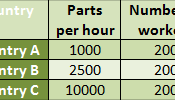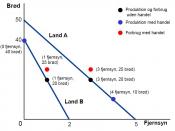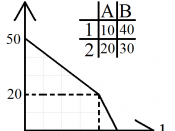1. Distinguish between an absolute advantage and a comparative advantage. Cite an example of a country that has an absolute advantage and one with a comparative advantage.
Absolute advantage is when a monopoly exists in a country when it is the only source and product of an item. Meanwhile, a comparative advantage is when a country can supply products more efficiently and at a lower cost than it can produce other items. South Africa has an absolute advantage because of its diamonds. The United States has a comparative advantage because of the many products we produce.
3. What effect does devaluation have on a nation's currency? Can you think of a country that has devaluated or revaluated its currency? What have been the results?Devaluation decreases the value of currency in relation to other currencies. Mexico is a country that has devalued their currency. The result of this is to make things less expensive.
4. How do political issues affect international business?Political issues affect international business by it helps to sell products overseas.
5. What is an import tariff? A quota? Dumping? How might a country use import tariffs and quotas to control its balance of trade and payments? Why can dumping result in the imposition of tariffs and quotas?An import tariff is a tax made by the nation on goods imported into the country. A quota limits the amount of products that can be imported into a country. Dumping is a country selling products at less than what it costs to produce them. A country uses import tariffs to protect domestic products by raising the price of imported ones. A country uses quotas by voluntary agreement or by government decree. Dumping can result in the imposition of tariffs and quotas because it permits quick entry into the market...


